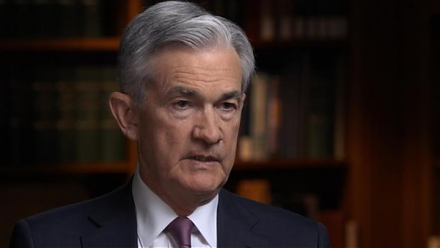

2018-10-23 12:36:00 Tue ET
federal reserve monetary policy treasury dollar employment inflation interest rate exchange rate macrofinance recession systemic risk economic growth central bank fomc greenback forward guidance euro capital global financial cycle credit cycle yield curve
Former Fed Chair Paul Volcker releases his memoir, talks about American public governance, and worries about plutocracy in America. Volcker suggests that public governance entails running the government with few unproductive policy debates. As the U.S. central bank, the Federal Reserve need not adhere to an explicit 2% symmetric inflation target. The current neutral interest rate hike can continue even when inflation rises above the target range of 2%-2.5%. Volcker supports stronger supervisory powers for both the Federal Reserve and Treasury. Both regulatory agencies should continue to conduct regular macroprudential stress tests on the systemically-important financial institutions (SIFIs) once per year in the post-Dodd-Frank era. SIFIs should build up sufficient core capital buffers to safeguard against extreme losses that might arise in rare times of financial stress. Also, the Volcker rule separates commercial bank activities from proprietary investment transactions. This firewall serves as a safety valve between safe bank deposits and risky asset investments.
Volcker worries about the impact of money on the U.S. political system, and he expresses grave concerns about the recent trend that America seems to devolve into a plutocracy. In his view, U.S. democratic regulations should restrict the direct influence of crazy rich Americans over political affairs.
If any of our AYA Analytica financial health memos (FHM), blog posts, ebooks, newsletters, and notifications etc, or any other form of online content curation, involves potential copyright concerns, please feel free to contact us at service@ayafintech.network so that we can remove relevant content in response to any such request within a reasonable time frame.
2019-03-29 12:28:00 Friday ET

Federal Reserve Chair Jerome Powell answers CBS News 60 Minutes questions about the recent U.S. economic outlook and interest rate cycle. Powell views the c
2018-01-05 07:37:00 Friday ET

Warren Buffett cleverly points out that American children will not only be better off than their parents, but the former will also enjoy higher living stand
2024-04-30 09:30:00 Tuesday ET

With clean and green energy resources and electric vehicles, the global auto industry now navigates at a newer and faster pace. Both BYD and Tesla have
2018-12-29 09:32:00 Saturday ET

Andy Yeh Alpha (AYA) AYA Analytica financial health memo (FHM) podcast channel on YouTube December 2018 AYA Analytica is our online regular podcast and news
2018-05-09 08:31:00 Wednesday ET

CBS and its special committee of independent directors have decided to sue the Redstone controlling shareholders because these directors might have breached
2019-04-19 12:35:00 Friday ET

Federal Reserve proposes to revamp post-crisis rules for U.S. banks. The current proposals would prescribe materially less strict requirements for community